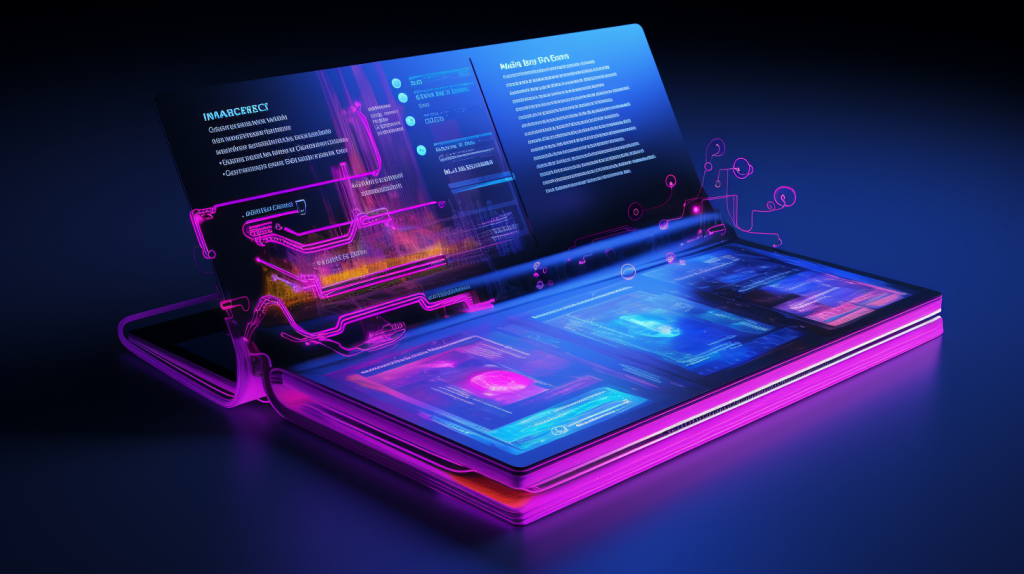In the rapidly evolving digital age, web3 blockchain technology has emerged as a force to be reckoned with, holding the potential to revolutionize a multitude of industries. Whether you’re an aspiring investor seeking opportunities, a technology enthusiast intrigued by the blockchain buzz, or simply someone curious about the underlying principles of this transformative technology, this article aims to provide you with a comprehensive understanding of what blockchain is and how it functions.
# What is Blockchain?
At its core, blockchain is a decentralized and transparent digital ledger designed to record transactions across a network of computers. Unlike traditional centralized systems where a single entity maintains control over data and transactions, blockchain relies on a distributed network of participants to validate and secure these transactions. Visualize it as a digital chain comprised of blocks, with each block containing a set of transactions. Once a block is added to the chain, it becomes an immutable part of the historical record, ensuring data integrity, transparency, and security.
Key Concepts:
- Decentralization: As Marc Andreessen, Co-Founder of Andreessen Horowitz, aptly puts it, “Blockchain is the tech. Bitcoin is merely the first mainstream manifestation of its potential.” Blockchain’s essence lies in its decentralization, which eliminates the need for intermediaries and central authorities.
- Cryptographic Security: “Satoshi Nakamoto, the pseudonymous creator of Bitcoin, highlighted the root problem of conventional currency: trust. Cryptographic techniques ensure the security and integrity of transactions, reducing the reliance on trust in centralized institutions. Source
- Consensus Mechanisms: Blockchain networks achieve agreement on transaction validity through consensus mechanisms. Notable mechanisms include Proof of Work (PoW) and Proof of Stake (PoS), both of which play a pivotal role in maintaining the network’s integrity.
- Smart Contracts: Nick Szabo, a computer scientist and cryptographer, emphasized the significance of contracts in our economic and legal systems. Blockchain technology allows for the execution of self-executing smart contracts, automating various aspects of agreements and transactions. Source
# How Does Blockchain Work?
To grasp how blockchain operates, let’s break down its key processes:
- Transaction Verification: When a participant initiates a transaction within the blockchain network, it is broadcast to all nodes (computers) on the network. Miners, or validators, compete to solve a complex mathematical puzzle that verifies and adds the transaction to a block.
- Consensus: To ensure the validity of a transaction, a majority of network participants must agree on its authenticity. This consensus is achieved through mechanisms like Proof of Work (PoW) or Proof of Stake (PoS), which validate transactions and secure the network.
- Block Addition: Each block within the blockchain contains a reference to the previous block, creating a chronological chain of blocks. This linkage, achieved through cryptographic hashing, makes it exceedingly difficult to alter or tamper with previously recorded transactions.
- Decentralization in Action: Blockchain’s decentralized nature ensures that data and transactions are secure, transparent, and resistant to tampering. The immutability of the ledger makes it a reliable and trustworthy system for various applications. “The three most important components of blockchain technology are decentralization, decentralization, and decentralization.” – Joe Lubin, Co-Founder of Ethereum and Founder of ConsenSys. Source
# Real-World Applications
While blockchain technology initially gained prominence as the foundation of cryptocurrencies like Bitcoin, its utility extends far beyond digital currencies. It has found applications in an array of industries, including:
- Supply Chain Management: Blockchain provides transparency and traceability in supply chains, enabling efficient tracking of goods from their origin to the end consumer.
-
Voting Systems: Blockchain can enhance the security and transparency of voting systems, potentially reducing fraud and ensuring the integrity of elections.
-
Digital Identity: It offers a secure and verifiable method of managing digital identities, reducing the risk of identity theft and fraud.
-
Healthcare: Blockchain can facilitate the secure and interoperable exchange of medical records, ensuring patient privacy and data integrity.
-
Finance: Beyond cryptocurrencies, blockchain has the potential to revolutionize financial services by enhancing security, reducing transaction costs, and enabling quicker cross-border transactions.
The Bitcoin protocol is not just about sending money from A to B. It has many features and opens the door to a multitude of possible uses.
Hal Finney, Cryptographer and early Bitcoin Contributor Source
# conclusion
Blockchain technology is a groundbreaking innovation that has the potential to reshape various aspects of our digital world. Its decentralized nature, cryptographic security, and transparency make it a powerful tool for creating trust and efficiency in various applications. As you delve deeper into the world of blockchain, you’ll uncover its vast potential and the many possibilities it offers for the future.
Remember, as Marc Andreessen stated, “Blockchain is the tech,” and its impact could extend far beyond what we can currently imagine. So, keep an eye on this transformative technology and explore its potential for yourself.
Blockchain, often hailed as a digital ledger magic, offers a compelling glimpse into the future of secure, decentralized, and transparent systems. Whether you’re an investor, technophile, or simply curious, the world of blockchain promises endless opportunities and innovations waiting to be explored.

helpful sources to learn more about blockchain Technology
For those eager to delve further into the intricacies of blockchain technology, there are valuable resources available. Coingeek offers an informative “Blockchain 101” course, while Geekflare provides a beginner-friendly guide to blockchain technology. Additionally, the Blockchain Council offers insights into the Metaverse, a concept closely intertwined with the evolving landscape of blockchain and digital technologies. As you embark on your journey into the world of blockchain, these resources will serve as valuable companions on your quest for knowledge and discovery.
- Coingeek: Blockchain 101 https://coingeek.com/bitcoin101/
- Geekflare: Blockchain Technology https://geekflare.com/blockchain-technology-for-beginners/
- Blockchain Council: What is the Metaverse? https://www.blockchain-council.org/metaverse/metaverse-guide-everything-you-need-to-know/




